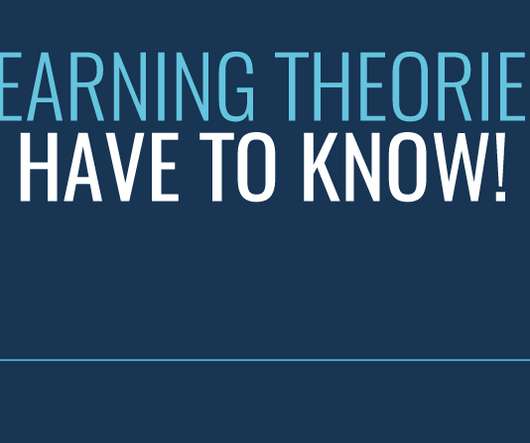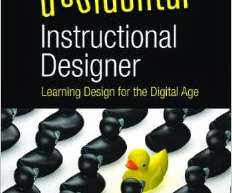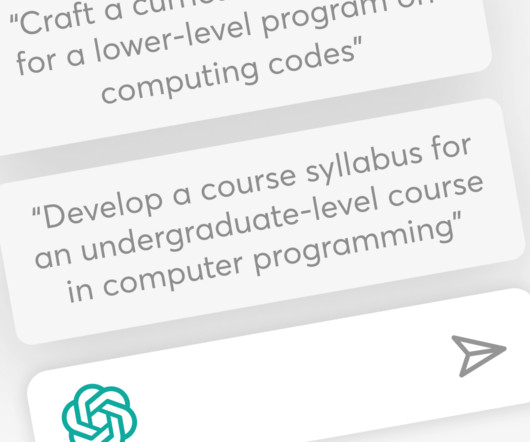10 Learning Theories You HAVE To Know!
Growth Engineering
MAY 21, 2020
Learning theories are sets of principles that explain how we best absorb information over time. Here are the 10 learning theories that you have you to know! The post 10 Learning Theories You HAVE To Know! appeared first on Growth Engineering.








































Let's personalize your content